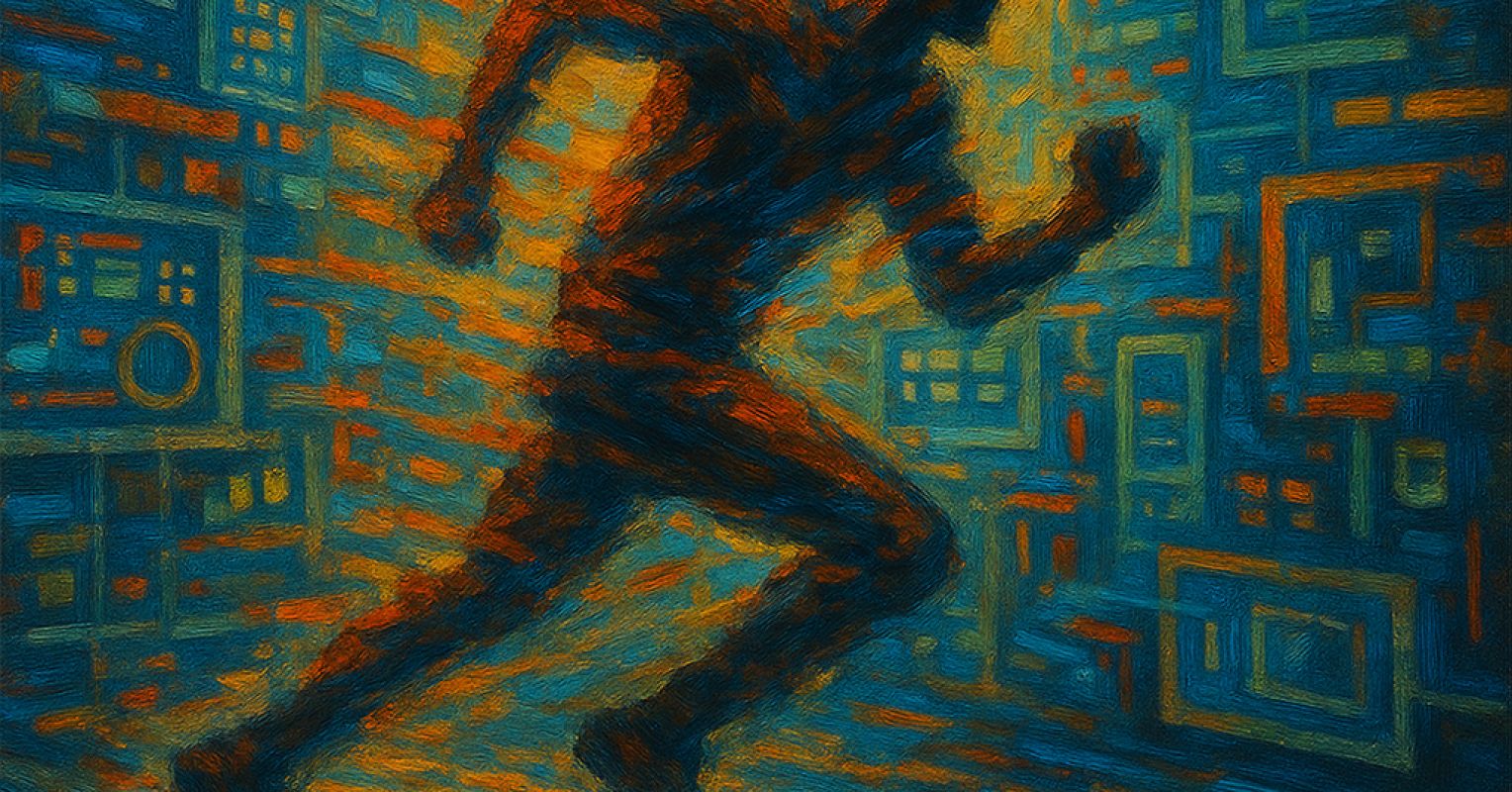
"It's a bit past 10 p.m., and I'm scrolling through my phone, telling myself I'm checking something important. But I'm not. I'm just checking that I still exist. This reflex-reaching for a device the moment we stop moving-has become the defining gesture of modern life. We call it staying connected, but what it really signals is something deeper: the fear that if we're not in motion, we're disappearing."
"The problem here isn't time itself. It's that we've confused motion with meaning. Progress was once synonymous with direction, buoyed by a collective belief that human effort could improve the world. Somewhere along our path, progress became a bona fide compulsion. We now measure worth by velocity: how fast we respond, how many boxes we check off, how much we produce before lunch. Every notification hijacks the same dopamine circuit that once signaled survival. So it's easy to mistake activation for being alive."
Late-night reflexes to check phones illustrate a deeper fear of disappearing when still. The impulse to remain constantly connected masks a compulsion to keep moving. Time poverty describes a chronic sense of having too much to do despite unmatched efficiency and automation. Motion has been confused with meaning, so worth is measured by velocity: response speed, tasks completed, and early productivity. Goals repeatedly shift, creating a hedonic treadmill where arrival triggers new targets. Persistent acceleration pushes meaning farther away and converts relationships, health, and joy into gamified metrics and dashboarded achievements.
Read at Psychology Today
Unable to calculate read time
Collection
[
|
...
]